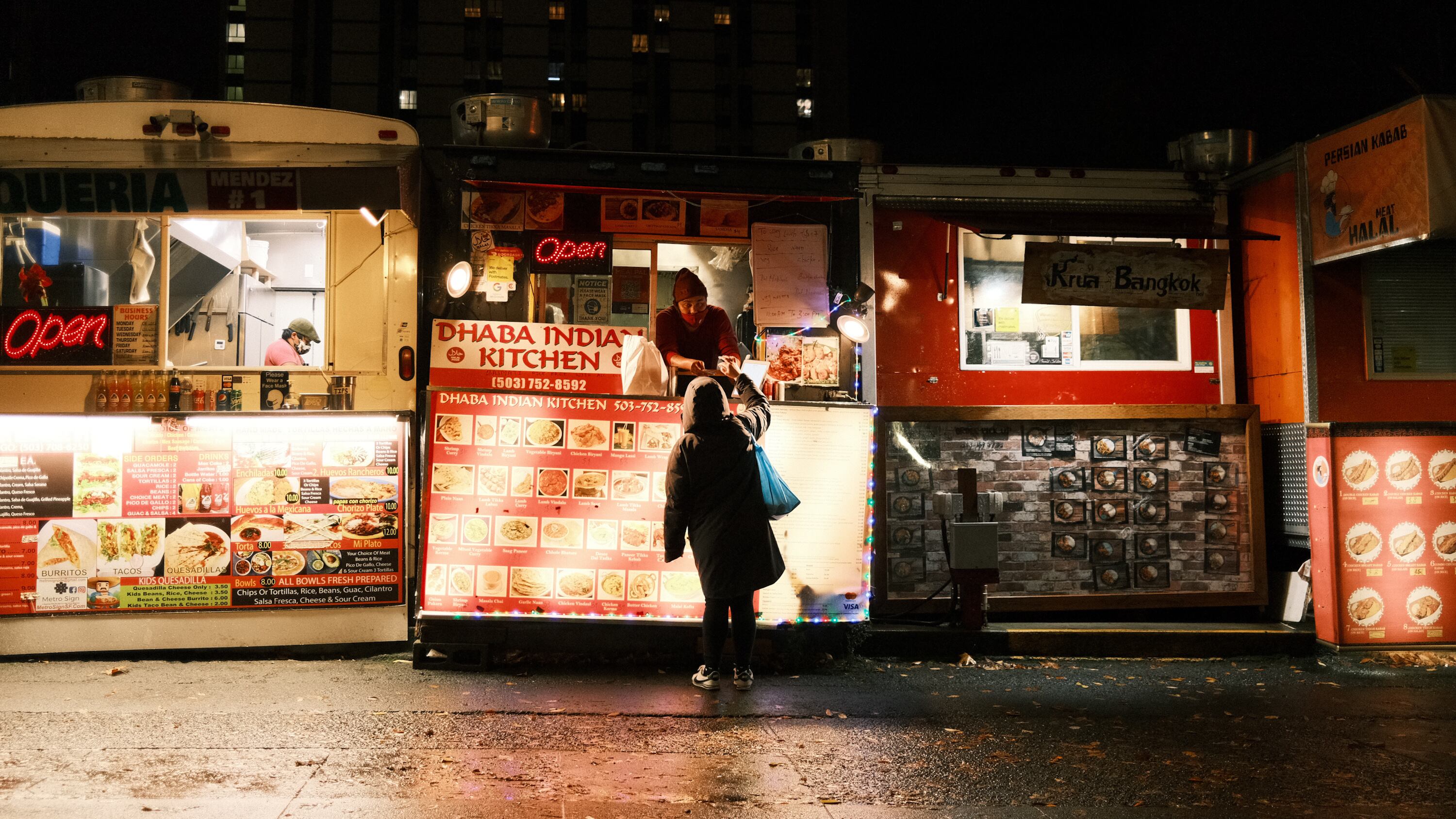In the run-up to his narrow November reelection victory, Mayor Ted Wheeler apologized for going it alone too often in his first term and promised more collaboration and concrete results if he won a second term.
A series of memos Wheeler wrote show both what collaboration looks like—at least in part, telling colleagues what he needs from them—and highlights what Wheeler wants out of the next four years.
On Jan. 12, Wheeler wrote to his four City Council colleagues—two of whom, Commissioners Carmen Rubio and Mingus Mapps, took office this month while one, Commissioner Dan Ryan, assumed his post in September.

Perhaps because he's working with such an inexperienced crew (the fourth commissioner, Jo Ann Hardesty, won election in 2018), Wheeler issued more prescriptive guidance than City Hall staff can recall him handing out in previous years.
The granular detail of Wheeler's instructions emphasize a key goal: making downtown Portland a place where people want to shop and dine, sooner rather than later.
The mayor told each of the four commissioners his top priorities: "livability, homelessness and safety." Within that, he offered some specifics. He wants Ryan, the city's point person on housing, to pursue options for reducing people sleeping on the streets, including "additional private sector partnerships, safe camp zones, and increased acquisition of facilities."
And he wants Hardesty to move aggressively on Portland Street Response, the pilot program aimed at a safer, more effective approach to 911 calls involving Portlanders experiencing homelessness or mental illness. As Oregon Public Broadcasting first reported, Wheeler asked Hardesty to "find ways to move more quickly toward implementation. In particular, I ask that you consider creative staffing models which may be more cost-effective and faster to establish."
Beyond those big-picture goals, Wheeler's fixated on two small-bore goals important to the business interests that supported his reelection: reopening a troubled downtown park and bolstering food carts.
Wheeler's deputy chief of staff, Sonia Schmanski, who oversaw the memos, says the goal was to coordinate council resources. She adds that Wheeler considers food carts a vital part of Portland's culture and that O'Bryant Square is a test case for the ability of city bureaus to work together. "The memos will help us focus," Schmanski says.
Here's what the mayor wrote:
Wheeler to Ryan, commissioner of the Bureau of Development Services:
My goal is to protect Portland from the worst economic impacts of the recession, and help our economy recover quickly, equitably, and sustainably by supporting the unique aspects of Portland's economy (for example, food carts) and the entrepreneurs who are its heart and soul. I ask that you work with Director Esau, other permitting bureaus, and me to develop and propose emergency steps to speed up permit approval across all categories.
Wheeler to Hardesty on permitting and Mapps on the Bureau of Environmental Services and the Portland Water Bureau:
And I ask that you continue to seek innovative solutions to the public health restrictions which have hampered our local retail industry—safe outdoor dining, festival streets, food cart pods, and others.
Wheeler to Rubio, the parks commissioner, and Hardesty, who oversees the Portland Bureau of Transportation:
O'Bryant Square reopening: O'Bryant Square is fenced off and inaccessible to immediate neighbors and visitors to downtown. [Portland Parks & Recreation], Bureau of Transportation, the Portland Parks Foundation, and community stakeholders have been loosely coordinated in the work to stabilize the block, bring the fence down, reopen the space, and move toward a long-term vision. There are a number of complexities which have slowed the work: restrictions associated with the property, the multibureau coordination required to advance the capital work, scarcity of resources. I ask that you partner with Commissioner Hardesty to ensure that PPR and PBOT work closely together to advance the project and move quickly toward an interim solution to bring the fence down

